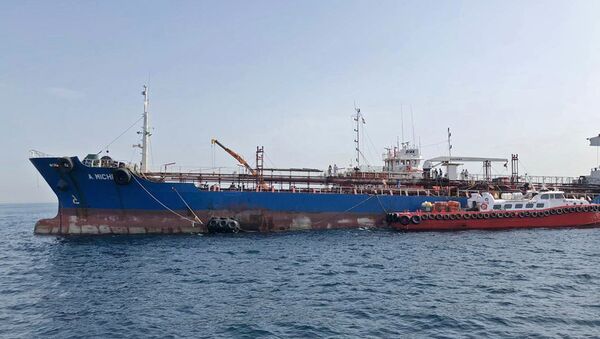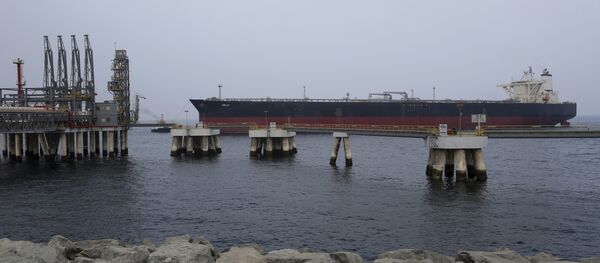Asked whether he believed the IRGC was behind the attacks, Pompeo said, "We haven’t formed a definitive conclusion that we can speak about publicly, but given all the regional conflicts that we have seen over the past decade and the shape of these attacks, it seems like it’s quite possible that Iran was behind these, and we’ll continue to develop the situation."
The top US diplomat also warned that Iran's actions carried the risk of escalating tensions or destabilizing oil prices, a development he said Iran would view as "advantageous."
Earlier this month, two Saudi oil tankers and two other vessels were targeted in a mysterious attack in the United Arab Emirates' (UAE) exclusive economic zone. No casualties or environmental damage were reported after the incident. In addition, Yemeni Houthi rebels carried out drone attacks against a Saudi oil pipeline, causing fire and minor damage.
No one has claimed responsibility for the attack on the oil tankers yet, but the United States reportedly believes that Iran might have orchestrated the sabotage.
READ MORE: Iranian Presidential Aide REVEALS Tehran's Strategy Toward US
In recent weeks, the United States has stepped up its military presence in the Middle East in what National Security Advisor John Bolton has called a "clear and unmistakable message" to Tehran. The United States has recently deployed an aircraft carrier strike group, Patriot missiles, B-52 bombers and F-15 fighters to the region, according to the Pentagon.
Responding to the US actions, Iranian Supreme Leader Ayatollah Ali Khamenei said that Tehran would continue to resist Washington but that there would be no war.



